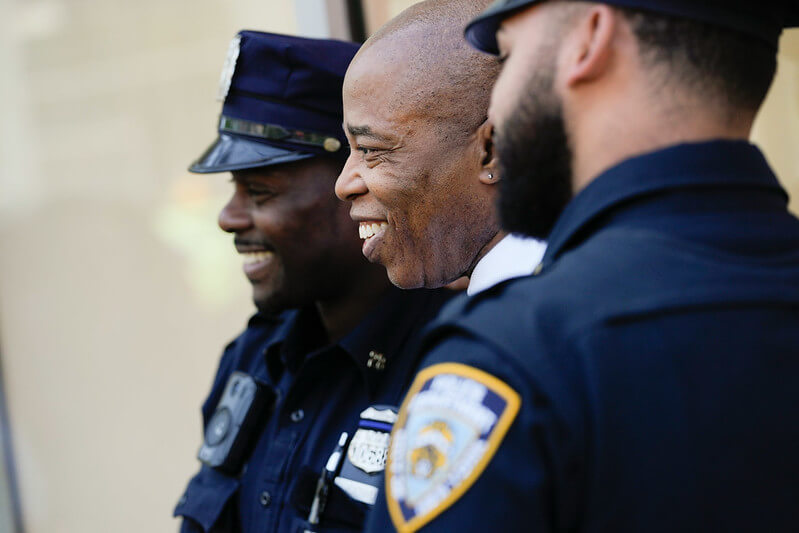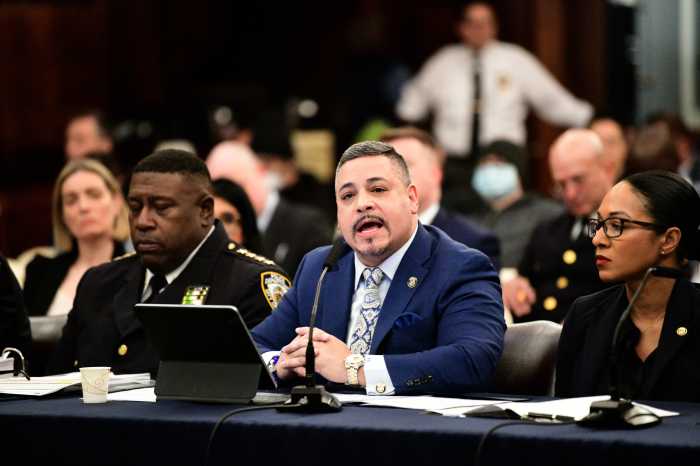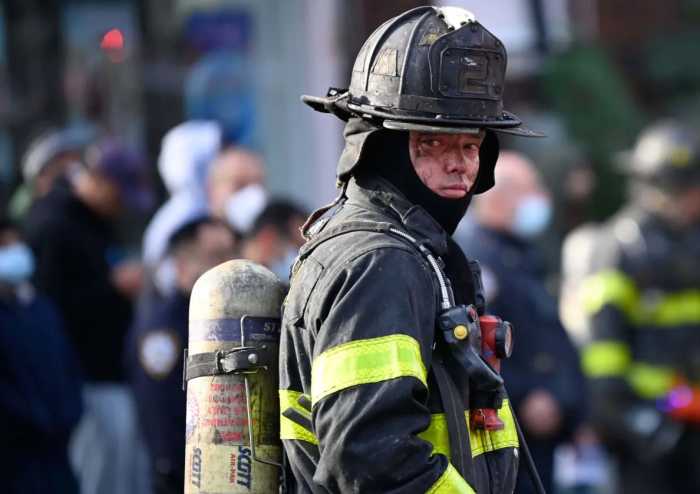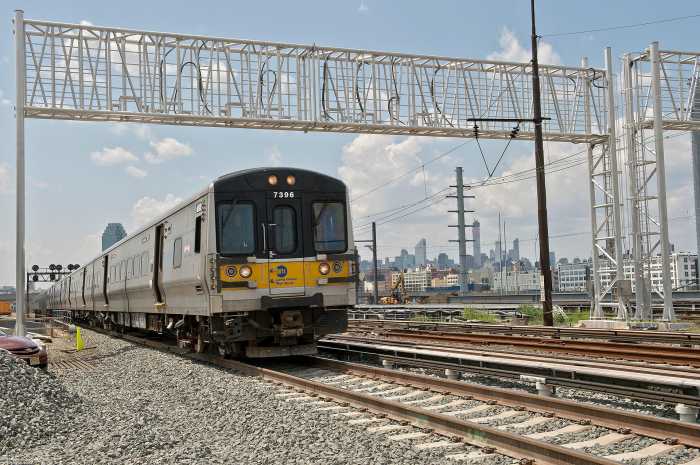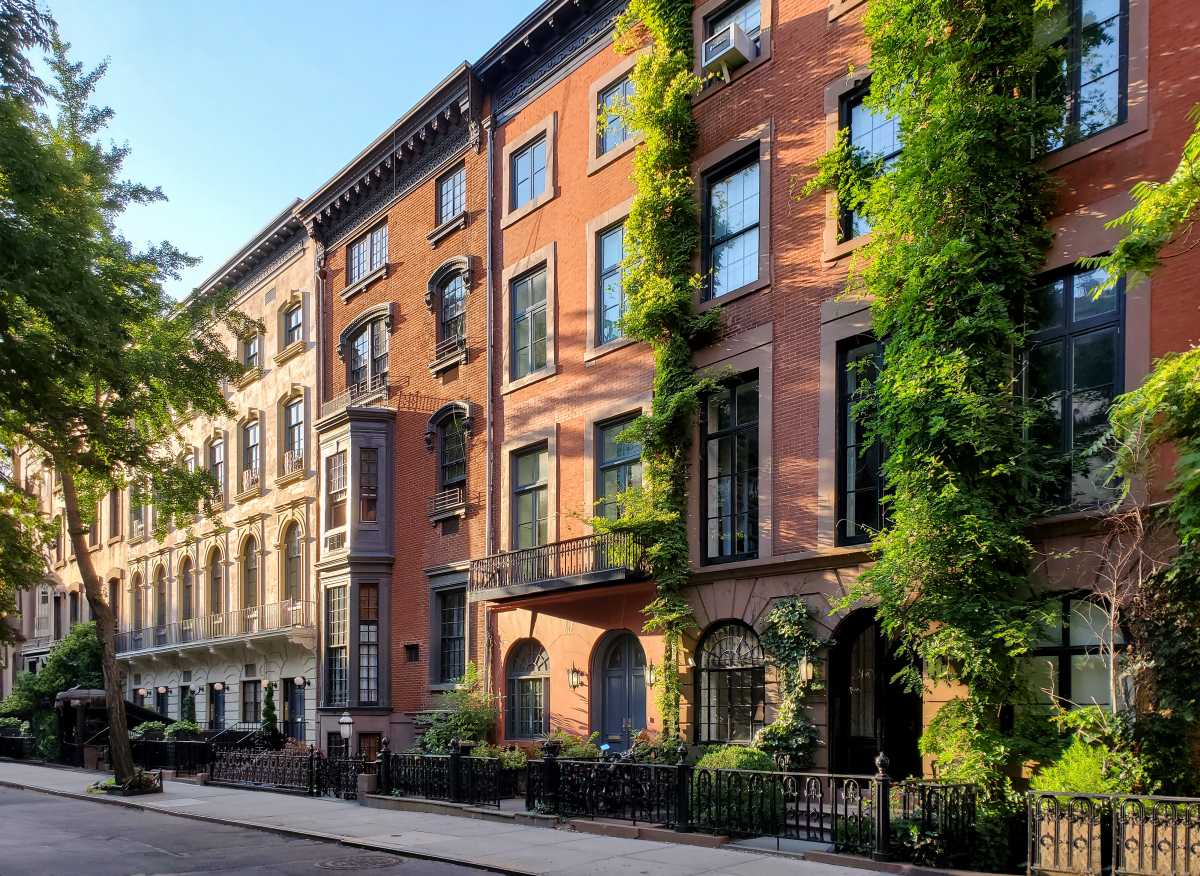In a new analysis, the Citizens Budget Commission (CBC) found Mayor Eric Adams’ administration likely lowballed the NYPD budget for the coming fiscal year by roughly $1.6 billion, after not fully factoring in the pattern of ballooning overtime costs the department’s racked up in recent years.
The budget is also likely to exceed the $10.8 billion allotted in the mayor’s Fiscal Year 2024 executive plan, the analysis found, due to the cost of a labor deal Gotham reached with the largest uniformed police union that was not included.
CBC President Andrew Rein said the NYPD’s $452 million overtime allocation for the coming fiscal year is at least $350 million lower than they’re likely to shell out, based on the agency’s OT spending in recent years.
“The city consistently under-budgets overtime,” Rein said. “Next year the budget has $452 million for overtime, which is at least $350 million lower than they’re likely to spend. And that’s where the city should really both work on controlling overtime, but more accurately reflect in the budget what is likely to be spent.”
The group estimates City Hall will blow a total of $817 million on police overtime for the current fiscal year — Fiscal Year 2023, which far surpasses the $453 million allotted to the agency in the adopted budget agreed to last June by $364 million — which includes $62 million in state funds for an ongoing surge of cops in the subways. That would mean the city will exceed its budgeted NYPD overtime spending for FY23 by nearly 81%, CBC found, which follows Fiscal Years 2021 and 2022, where the agency’s OT costs surpassed the adopted budgets by roughly 79% each year.
In his own report, released late March, city Comptroller Brad Lander found the NYPD would spend nearly double its allotted sum on OT.
Rein said that while the Adams administration is no different than past administrations when it comes to controlling police overtime, they should try to be.
“This administration is no different than the past. So they’re not doing anything special, but they should do something special,” Rein said. “I think they’d like to control overtime. But the fact is, no one has been successful, including this administration, in doing so. So it’s much better to have your budget reflect what you think is actually going to be spent. And that would just be a more transparent way to tell the people where their money is going.”
Adams, a former police captain who’s made public safety a central piece of his mayoralty, has defended the NYPD’s overtime use as recently as last month, as many progressive City Council members and advocates have called for reducing that spending as a way to offset wide-ranging cuts the mayor has proposed to most city agency budgets. He, however, had committed to cutting the agency’s OT spending in half during his mayoral campaign in 2021.
During a question and answer session with reporters following the rollout of his executive budget in late April, Adams went on a multi-minute tangent against critics of NYPD overtime use. He questioned if they were “anti-overtime” or “anti-police” — referring to unnamed City Council members he said he’d recently discussed the issue with — and why they weren’t concerned about the overtime tabs of other city agencies as well.
The NYPD consistently far surpasses other departments in money spent on OT.
But in an emailed statement, a mayoral spokesperson insisted Adams has advocated for steps to reduce OT use and is “commited to ensuring” it’s deployed “responsibly.”
“Mayor Adams has repeatedly emphasized the need to rein in overtime costs in the NYPD, through steps such as redeployment of police personnel and strategic civilianization of the department. The administration is committed to ensuring we use overtime responsibly, while retaining the necessary flexibility to uphold public safety.”
When it comes to labor contracts, the analysis found the NYPD’s FY24 budget doesn’t include over $900 million in raises agreed to in the recently ratified $5.5 billion five-year contract between the city and the Police Benevolent Association (PBA). That’s because City Hall has budgeted the full amounts for uniformed and civilian labor agreement costs in its labor reserve, but didn’t have time to reflect the PBA contract costs in the NYPD budget as the agreement was ratified just two days before the executive budget was released on April 26.
The cost of the PBA contract is expected to be reflected in the agency’s budget in the final adopted spending plan that must pass by July 1. Rein said the delay in labor contract costs being reflected in the budget is the “normal course of doing business.” The mayor’s executive budget even mentions the fact that timing prevented it from including the PBA contract in that plan, but that it would be reflected in the adopted budget.
Additionally, CBC found, the collective bargaining pattern set by the PBA contract would increase the cost of compensation for the remaining NYPD uniformed workers by $300 million in the coming fiscal year.



